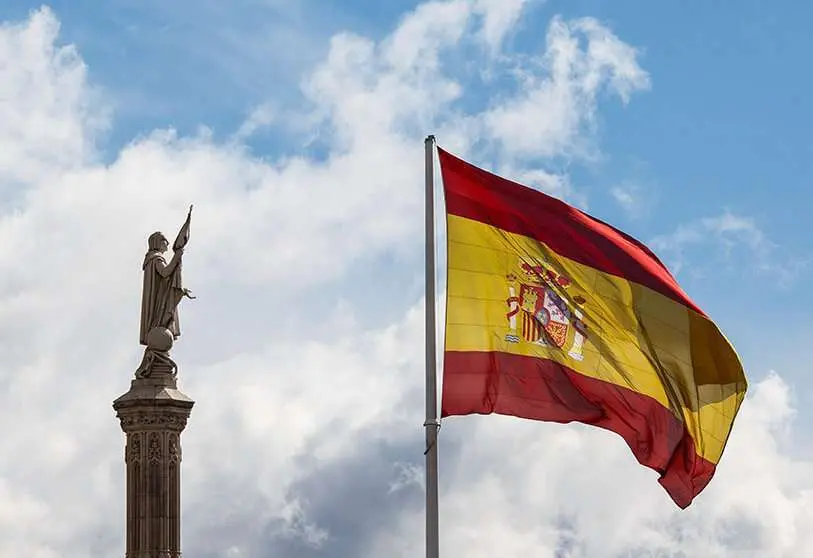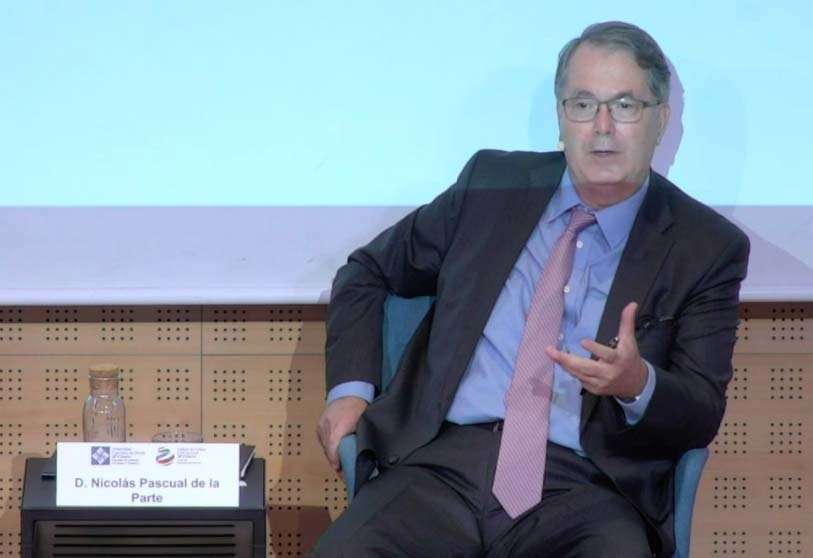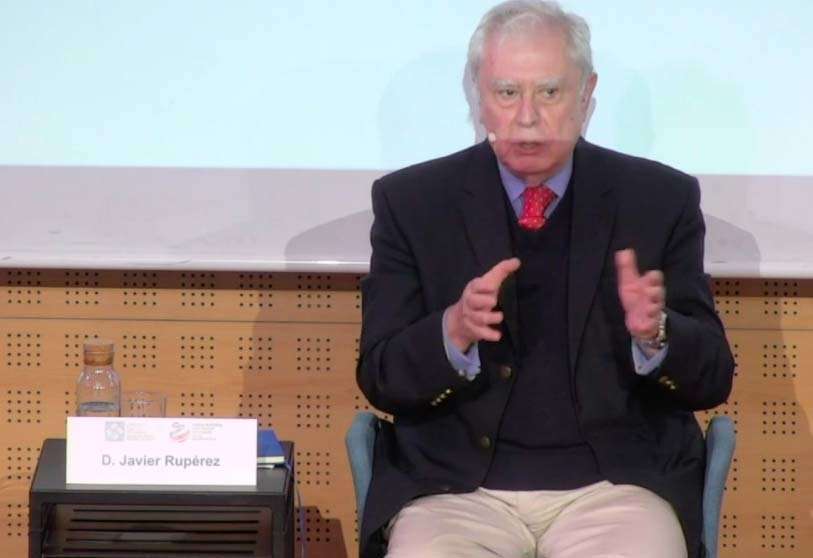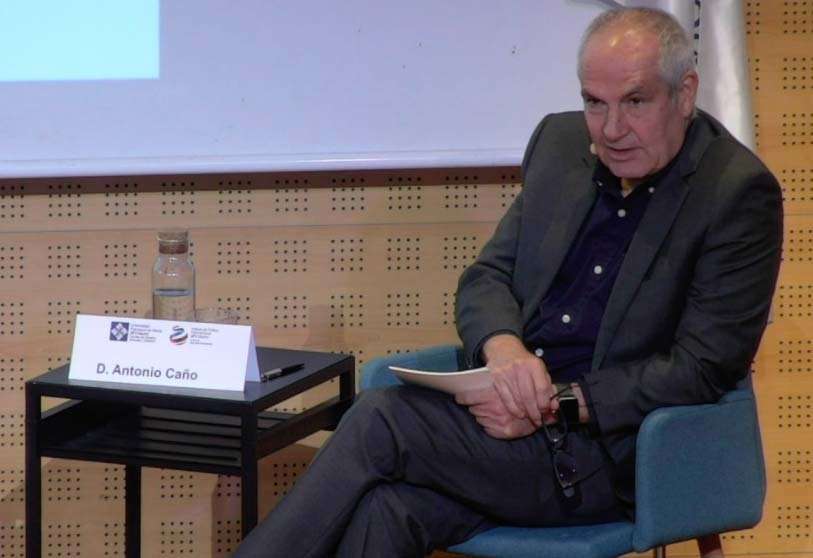"Foreign policy must be a state affair"

Spain's role in the world is unclear. The country's external projection is diluted and has lived in the background for several decades. Perhaps due to the national situation, Spain has shown itself incapable of articulating a defined road map on the international stage. This precarious condition prevents it from gaining influence in a multipolar international order, characterised by the weight and participation of multiple actors. In order to reverse this scenario, a general diagnosis must be made. And, from there, to begin to build.
With this in mind, the Francisco de Vitoria University is inaugurating 'A foreign strategy for Spain', a conference dedicated to the analysis of Spanish foreign policy, which began this Thursday and will end on 15 November. The conference has the backing and funding of the Secretariat of State for Global Spain, the highest body responsible for the strategic design of Spain's foreign action, whose capacities are subordinate to the Ministry of Foreign Affairs.
The first of the meetings was attended by three leading experts on Spain's history abroad. Spain's permanent representative to the NATO Council, Nicolás Pascual de la Parte, with a prolific diplomatic career; Javier Rupérez, who also served as Spain's highest representative in the Atlantic organisation and has a long history in national politics; and journalist Antonio Caño, former editor of 'El País' between 2014 and 2018. The director of the UFV Centre for International Security, Ignacio Cosidó, was in charge of moderating the colloquium.

"Spain is a medium-sized power with global projection", stressed Nicolás Pascual. Recognising that Spain is not at the forefront is the first step. The diplomat states that, "since the reign of the Catholic Monarchs", Spain's foreign policy has remained unchanged to a greater or lesser extent. "Spain's vocation is Atlantic and its projection is Mediterranean", Pascual stated. In this sense, nothing that happens in the Mediterranean is alien to Spain. In the opinion of the Spanish representative to NATO, the country needs to maintain "the Canary Islands, Gibraltar, Balearic Islands axis".
Although our focus is on the Atlantic and the Mediterranean, Pascual advised looking at Africa. Spain must gain influence in the region, as "it is in a very delicate geostrategic area close to the Maghreb and the Sahel, and acts as Europe's southern border". A critical point that requires a detailed plan. But the African continent should not be the only one in the spotlight. Latin America is also important because of Spain's historical and cultural legacy. In this region, there has been a rise in "identity politics" that is damaging to the national image.
Above all, the diplomat is aware that Spain "is by no means the main theatre for the United States". In fact, Washington has shifted its axis of foreign action towards the Asia-Pacific region. Nevertheless, according to Pascual, Spain must invigorate its bilateral relations with the United States. A challenge for the Spanish government, seen from the US as a second-tier ally, as demonstrated by President Sánchez's inability to hold a meeting with his US counterpart Joe Biden.

In the same way, Spain "must create a strategy towards Russia", the diplomat said. Until now, Europe has developed a volatile 'modus vivendi', a position without firmness. Moscow has been one of those in charge of reversing the international order. In Pascual's words, the geopolitical chessboard has gone from being ruled by the force of law to being ruled by the law of force. A factor that calls into question the role of the liberal organisations that ruled in the twentieth century.
Rupérez came to the defence of these organisations: "Of course we are in a different world. It is not 1982, when Spain joined NATO; nor 1989 with the fall of the Berlin Wall or 1991 with the dissolution of the USSR. It is not even the post 9/11 world. But to state categorically that it is a world in which the liberal international order, which prevented a third world war, has ended is risky, and perhaps I am speaking from wishful thinking.
The diplomat, who was active during the Transition, referred back to the Franco regime, which "did not have the foreign policy it wanted, but the one it could". Once democratic openness had been achieved, Rupérez maintained that Spain had been building an international action "based on two pillars: the European Union and NATO, which were the two great projects that we lacked to adapt ourselves to the countries around us". For this reason, the diplomat affirms that foreign policy "begins to be cemented from within".

"Nothing prevents us, even as members of NATO, from having deeper relations with some of its members, we don't have it, we haven't cultivated it and we should have. Why haven't we done so with Germany, for example, or with some of the Eastern European countries close to the Soviet orbit," Rupérez questioned. "We should be more active in both organisations, especially in NATO, because there is no foreign policy without a security policy, and this is related to defence strategy. Although the diplomat acknowledged that it is not very popular today to discuss such issues.
Journalist Antonio Caño materialised the terms of the debate. "The lack of international knowledge about Spain is surprising. Four clichés are known about us, and we have paid for it in the conflict in Catalonia. Most foreign governments were unaware of the background to the problem". Caño was highly critical of the scant resources allocated to embassies, although he acknowledged that "we are one of the best-performing and best-moving embassies. And we are among those that help our citizens the most".
"Spain currently lacks a foreign policy", the journalist said. The country is tackling some foreign policy problems "in an improvised way and is getting by. Little else". The recent diplomatic crisis with Morocco and the closure of one of the gas pipelines that reach the peninsula from the Maghreb were the best examples of this. Actions and decisions that are not very forceful or contradictory and which have required medium- to long-term prospective plans. Two scenarios that contrast with the evacuation of Afghanistan, where the army's role was decisive.

Fran Dacoba, Brigadier General of the Spanish Army, spoke from the bench to vindicate the role of the Armed Forces. "We live in an uncertain world that creates insecurity, which gives rise to tensions and thus to conflict. Not only military, but above all commercial and technological". And what happens in the world "is going to end up affecting our security", the general concluded. Despite the praise from the political class, it seems difficult for Congress to increase the defence budget, as is being done in many other countries in the region.
Caño insisted that "the lack of presence in Latin America is alarming. This questions our idea of nationhood; we probably don't know who we are. And not only in Latin America, but also in Central America". The journalist recalled the times of the Transition when Spain was taken into account on the continent. It was the United States that demanded its regional perspective in countries such as Cuba, and the political process in Spain even inspired Chile. Today, however, Spain is not even taken into account at the table in Mexico City where, until last week, Venezuela's immediate future was being decided.
"What has happened since then is that Spain has lost faith in its own national project. And when you don't have faith in yourself it is difficult to expose yourself and to have a presence abroad. A country that does not respect itself is hardly going to be respected by others", said Antonio Caño. The diagnosis has been made, the next step is to find a recipe that will bring Spain back to the forefront of the international chessboard.









